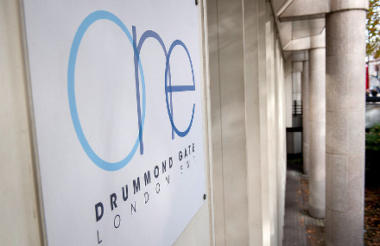The Charity Commission has published an inquiry report into a Luton-based educational charity, in which it highlighted a “series of failings” at the organisation and said its trustees had mismanaged it.
The report published by the charity regulator today, highlighted “a series of failings” in the management of the Rabia Educational Trust, which has charitable aims of advancing “the single sex Islamic faith based education of girls and boys” and which, to that end, operates the Rabia Girls’ and Boys’ School in Luton.
The report criticised the charity’s trustees for poor management and said the organisation had failed to submit annual accounts within deadlines, had “inadequate internal financial controls and a failure to account for cash” and had failed to “comply with legal requirements around the disposal of property to connected parties”.
The regulator concluded that, while the charity had made some progress towards addressing its concerns, there “is still work for the trustees to do in order for the Commission to be satisfied that this is a charity that is capable of operating the school”.
Statutory inquiry first launched by regulator in 2016
According to the report, the Commission first contacted Rabia’s trustees in 2012 after the organisation had repeatedly submitted accounts and annual reports late. Subsequently, an action plan was submitted by the regulator to the charity’s trustees in 2015.
However, once the trustees had failed to respond to the points raised in the action plan by the regulator, the Commission launched its statutory inquiry into the charity in 2016.
The Commission has criticised the trustees for being unable to “demonstrate sufficient accounting record to explain all the charity’s financial transaction”, had not submitted accounts and returns “within the ten month statutory deadline” and that trustees were slow to respond to requests for updates.
The Commission also noted that, having launched its inquiry, it became aware that Ofsted inspectors had reported concerns about “behaviours modelled by the leaders of this school” after a staff meeting had been segregated on gender lines. The complaint was forwarded, via the Department of Education, to the Equality and Human Rights Commission.
The trustees told the Commission that this “was an isolated issue” as the meeting had taken place in a prayer room, and said it did not permit segregation on gender lines at internal meetings.
The Commission said that Rabia trustees have promised not to hold future meetings in a similar setting again.
The Commission also took issue with the trustee’s decision to dispose of the charity’s “interest in an old public house to another registered charity on a 99 year lease at a rental of £24,000 per annum” as it wasn’t registered through the Land Registry, and was drawn up “without legal or professional advice”.
Rabia trustees ‘fully cooperated’ with Commission
The Charity Commission said that it has used its powers and directed the trustees to “make the required improvements by way of an Order under section 84 of the Charities Act 2011”.
It also said that trustees must “urgently address” its wider governance concerns.
Michelle Russell, director of investigations, monitoring and enforcement at the Charity Commission said: “Our report concludes that this charity has been mismanaged by its trustees, who are responsible for a series of failings – including a failure to ensure that the school operated by the charity meets the Independent School Standards.
“While there are signs of improvement, it is clear that the trustees need to do more to ensure the charity’s school meets the required standards. We have used our powers to ensure this will happen and will continue to monitor the charity’s trustees until we are satisfied they have made the required improvements, working collaboratively with the Department for Education and Ofsted.”
The Rabia Education Trust said that trustees "have fully cooperated with the Charity Commission and will ensure that all recommendations are fully implemented".









